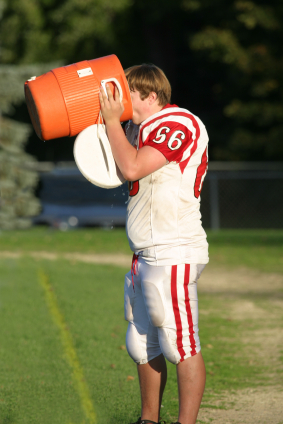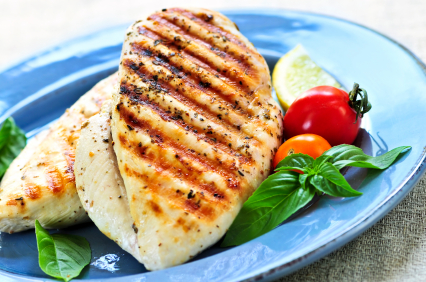 Pre-season is the critical link between the off-season and the regular season; a time when, typically, training is tough and calorie demands are high. It's also an important time to tackle nutritional issues such as weight loss, cramping, and poor energy levels, since it is the last chance before the season begins to address any nutritional habits that can interfere with peak performance.
Pre-season is the critical link between the off-season and the regular season; a time when, typically, training is tough and calorie demands are high. It's also an important time to tackle nutritional issues such as weight loss, cramping, and poor energy levels, since it is the last chance before the season begins to address any nutritional habits that can interfere with peak performance.
Nutritional goals
While the primary nutritional goals of pre-season training are to maintain and build lean muscle, other goals include developing flexibility, maintaining adequate hydration during the hot summer months, and staying healthy and injury-free.
Your child's pre-season diet needs to focus on:
- Consuming enough calories to maintain weight and muscle gains;
- Recovery nutrition, which entails consuming specific foods at the right time to stay strong and injury free
- Drinking enough fluids to match sweat losses.
Another goal is getting the right balance of carbs, protein, and fat. In their statement for adolescent athletes in organized sports, the American Dietetic Association recommends a diet which gets:
- 55 to 60% of total calories from carbohydrates
- 12 to 15% of total calories from protein; and
- 25 to 30% of total calories from fat.
For young athletes, this balance is often skewed, since making healthy choices are not often a high priority - especially when they are concentrating on practicing hard. Fast food often seems like the easiest way to get fueled between and after practices.
While some drive-through choices, such as sub sandwiches, lean grilled burgers and roasted chicken with rice and corn, are quick and healthy choices, unhealthy choices (e.g. breaded, fried meats with sides of fries, washed down with soda) rob the body of vitamins, minerals, and food compounds called phyto-nutrients that help with recovery.
High calorie diet needed
One way to gauge your child's calorie needs is to refer to the Food and Nutrition Board of the Institute of Medicine's Estimated Energy Requirements (EER). Based on the board's calculations, very active 14- to 18-year-old athletes need to consume between 3283 calories to 3804 calories per day. Leaner athletes, those who burn more or who need to gain weight, may require an additional 500-1000 calories. Consuming that many calories can be a challenge for athletes, whether it's due to fatigue, a time crunch, or lack of appetite.
Some nutritious, high calorie options include:
- Trail mix-dried fruit and nuts
- Large apple or banana nut fruit muffins with a Greek yogurt

- Peanut butter and jelly sandwiches on whole grain bread
- Large fruit smoothie with peanut butter, whey, or vegetarian protein alternative
- 12-inch whole wheat sub with "the works" (lean meat, cheese, oil, and veggies)
- BBQ chicken breast, roasted potatoes, mac and cheese and corn on the cob.
Without adequate fuel before, during, and after training, the weight and muscle gains your child may have made in the off-season cannot be maintained, his body will be weak heading into season, and his recovery from the hard pre-season training will be incomplete. Getting enough calories with the right balance of carbohydrates, fats and protein are key to maintaining a healthy body during a long football season.
Lisa Dorfman, MS, RD, CssD, LMHC, the Running Nutritionist®,is a licensed nutritionist, licensed psychotherapist, certified coach, Board Certified Specialist in Sports Dietetics, and a Board Certified Professional Counselor. She is an adjunct professor in the University of Miami Department of Exercise Sciences, and, as Director of Sports Nutrition and Performance for the Miami Hurricanes. A personal nutritionist for numerous professional athletes, Lisa is also national Olympic and Paralympics Team Nutritionist for US Sailing. Her latest book, Performance Nutrition for Football (Momentum Media 2010) is available at www.primeathlete.com and on her website at http://www.foodfitness.com.
Created August 9, 2010, Updated August 4, 2014









